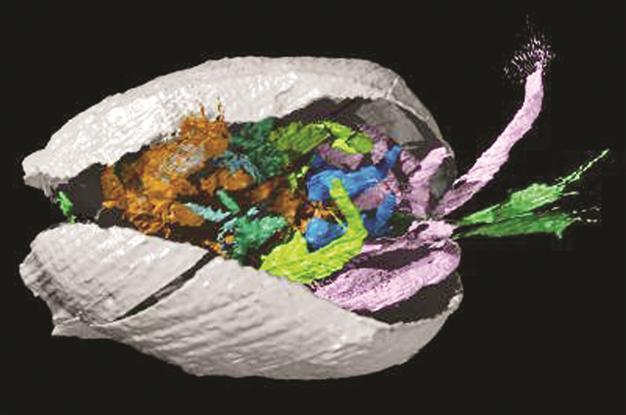Rare animal fossil special for scientists
LEICESTER

The species, which is up to 10 millimeters long, is special because it is well preserved, complete with not only the shell but also the soft parts.
An international team of researchers have made an extremely rare discovery of a species of animal related to crabs, lobsters and shrimps that is new to science, Science Daily has reported.
Scientists from the universities of Leicester, Oxford, Imperial and Yale have announced their discovery of a new and scientifically important fossil species of ostracod in the journal Proceedings of The Royal Society B. The research was funded by the Natural Environment Research Council.
The discovered species, which is up to 10 millimeters long, is special because it is exceptionally well preserved, complete with not only the shell but also the soft parts, its body, limbs, eyes, gills and alimentary system. Such discoveries are extremely rare in the fossil record.
The discovery of the tiny shelled arthropod was made in 425 million year old rocks in Herefordshire, Welsh Borderland. The rocks at the site date to the Silurian period of geological time, when southern Britain was a sea area on a small continent situated in warm, southerly subtropical latitudes. The ostracods and associated marine animals living there were covered by a fall of volcanic ash that preserved them frozen in time.
Professor David Siveter, of the University of Leicester Department of Geology, said: “The two ostracod specimens discovered represent a genus and species new to science, named Pauline avibella. The genus is named in honor of a special person and avibella means ‘beautiful bird’, so-named because of the fancied resemblance of a prominent feature of the shell to the wing of a bird.”
